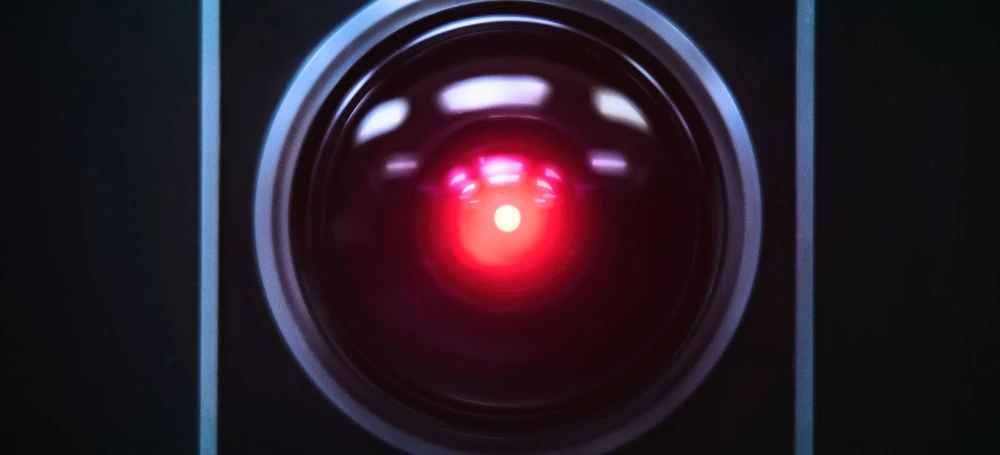The Calm Before the Interview
As a first-timer, I was nervous—not about what to say, but how the AI would parse it. I recalled the frustration when asking Siri to find a nearby coffee shop, only to have it search the internet for something entirely different. If I spoke for minutes, filler words (“um,” “like,” etc.) or mid-sentence corrections might confuse the AI as well. Moreover, how would it handle me explaining a very professional concept? I had no idea how much domain knowledge the model covered—some fields lack public data for AI training.
All these said, even before clicking the start button, I felt an immediate relief: I controlled exactly when to begin. When the video interface popped up, a pulsating blue dot appeared instantly (a male voice assumed), avoiding possible waits for late interviewers.
More problematic were phone interview scenarios such as:
- Ringing at 10 AM for a 2 PM slot.
- Call drops mid-conversation (interviewer driving, shaky signal).
- No-shows followed by calls days later while I was at the zoo with kids.
An AI interviewer would never do this—or at least send: “Rescheduling due to temporary neural network glitch… (my circuits need coffee).”
Inside the AI-Powered Conversation
When we started the formal interview, the AI asked straight: “Based on your resume, you have expertise in X, Y, Z—is that correct?” I confirmed. Then it drilled into my projects—starting with the most relevant one, asking deep questions about my resume highlights. Unlike humans who often skip key experiences, this AI understood every line. My career spans diverse frontiers in bioinformatics—a mix of biology, data science, and software engineering—where even experts rarely share identical subfield knowledge with me. But this was not an issue for the AI, at least for this exact model I talked with. It covered all my previous experience in these subfields, so I could discuss anything on my resume without worrying it’d be “too niche.”
After project questions, it asked: “Propose a joint project we’d tackle together.” Um…, it’s new territory during a job interview! My first response was, “Give me 10 seconds,” as I didn’t know how AI would interpret the silence while I was thinking. Then I came up with a proposal. After that, there came the magic: It summarized my idea, confirmed details, added new layers, and explored challenges. We then debated extensions organically, which I really liked. The brainstorming felt genuine—not robotic.
Instead of the usual “Do you have questions for us?” section, it asked for my feedback on its performance versus human interviewers. I praised its comprehensive understanding—many interviewers aren’t experts in my field, to be fair—although some discussions might have lacked the depth possible with a human expert in a specific sub-field.
Finally, the AI asked for places where it could improve. “That’s a great question,” I replied, “I think real-time feedback would be beneficial during our conversation.” I was initially concerned that my input might exceed the AI model’s context window, although a small window of 4096 tokens could handle a voice recording over 10 minutes. I would feel more comfortable with a virtual avatar displaying facial expressions indicating when to continue or pause.
The Double-Edged Sword of AI Interviews
Overall, my AI interview experience was positive. The technology effectively handled accent variations and speech imperfections, understood scientific discussions, and facilitated in-depth, creative dialogue.
As AI becomes more prevalent in job interviews, I expect it will offer candidates greater opportunities to showcase their skills interactively, rather than having resumes scanned by shallow filters before they even speak with a person. Unlike human interviewers, who may consciously or unconsciously favor certain candidates, AI treats all applicants the same way. However, if poorly trained, AI models could generate new biases – unfair outcomes stemming from opaque system flaws.

During my interview, the AI’s flashing icon reminded me of HAL 9000 from the movie “2001: A Space Odyssey.” This AI’s cold logic led it to kill humans it perceived as threats to the mission. This highlights how AI, operating as a black box, might logically justify harmful decisions (like silently rejecting brilliant candidates over cultural language nuances), revealing critical flaws only after substantial damage has occurred.
Given these risks, rigorous oversight, regular system checks, and robust ethical frameworks must be implemented to ensure responsible usage. By proactively addressing these challenges, leveraging AI for recruitment can enhance efficiency without compromising fairness. I’m optimistic — if we keep the AI in check.